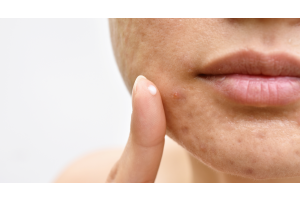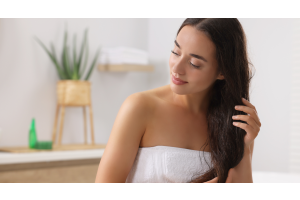Local Storage seems to be disabled in your browser.
For the best experience on our site, be sure to turn on Local Storage in your browser.
Gold, Incense and Myrrh. Benefits for your skin.

The Three Wise Men from the East came to Jerusalem asking about the birth of the baby Jesus. As an offering, they brought him; gold, incense and myrrh. These three gifts represented Jesus' power as a king and as a god, but also his mortality.
Today, we can find these offerings within the world of cosmetics thanks to studies that demonstrate their benefits for the skin and health. Want to know more? Keep reading.
Gold
Since ancient times, gold and skin have maintained privileged links.
In ancient times, it was said that Cleopatra had a mask made of pure gold made to be worn while she slept and kept young.
It was also said that Elizabeth Taylor used creams with pure 24-carat gold to eliminate wrinkles and beautify her face; likewise, doctors at the imperial court used gold leaf that was pulverized and sprinkled on the skin to nourish and revitalize it.
Nowadays, cosmetology has appropriated this pure mineral due to its great virtues.
Some of its properties as a cosmetic:
- They activate the transfer of electrons.
- It helps stimulate cell renewal to boost the energy of the skin.
- It induces the incorporation of mineral nutrients, avoiding skin flaccidity.
- It favors the formation of collagen and elastin.
- Immediate tensor effect that acts as a "lifting".
- Its antioxidant power forms a barrier against external aggressions.
- It optimizes other active ingredients that are later applied to the skin.
Its main function as a cosmetic is theoretically to stimulate the transfer of electrons between gold and ions naturally found in the skin, thus helping to stimulate cell renewal by activating the skin's energy.
In this way, gold acts as if it were a small charger, between the metal and the electricity we have in our body. When it comes into contact with our body, it stimulates electrical activity which helps to improve the elasticity of the tissues.
Colloidal gold or gold micellar solutions in nanoparticles can be found in serums, creams, exfoliants and masks.
Incense
Incense is the first of the known odoriferous substances mentioned in ancient records. This word comes from the Latin incendere (to burn) and designates an aromatic substance obtained from certain resinous trees of the burseraceae family whose exudations, when burned, give off a pleasant smell.
To produce a more intense and heavy aroma, other substances are added, among which are sandalwood, balsam, myrrh, aloe, cedar, juniper, benzoin, musk, estoraque and amber.
Incense has been known since ancient times and was commonly used for religious offerings, to drive away evil spirits, to keep away diseases and, naturally, as a means of communication between men and their Gods, since the delicious perfumes pleased and attracted the divinities and predisposed them to favor what was implored in the prayers. Placed on charcoal embers, the incense was slowly consumed, letting its exotic fragrance escape.
Its use in the ancient world was mainly ritual. Egyptians, Greeks, Romans, burned incense in their homes and temples and also in their funeral ceremonies, in the belief that the soul ascended along with the smoke.
Incense was also used in cosmetics and medicines. The Egyptians chewed it to fight bad breath and also to relieve mouth injuries. Greeks and Romans mixed it with balsam and made ointments for wounds, and the Chinese inhaled the smoke to cure respiratory diseases.
Incense oil promotes cell regeneration and keeps tissues and cells healthy. It is useful for skin health and can help treat dry skin, reverse the signs of aging and reduce the appearance of stretch marks.
The benefits of incense oil are mainly attributed to its anti-inflammatory, astringent, antiseptic, disinfectant, digestive, diuretic and expectorant properties.
It has proven useful for improving health in:
Arthritis and rheumatoid arthritis: according to research by scientists at Cardiff University, incense can inhibit the production of key inflammatory molecules, helping to prevent the breakdown of cartilage tissue.
Colds and respiratory disorders: the oil can clear the airways and lungs and can relieve congestion.
Oral health problems: The antiseptic qualities of this oil can help prevent bad breath, tooth decay, toothaches, mouth sores and other infections.
Digestive disorders: the oil accelerates the secretion of gastric juices, bile and acids and stimulates peristaltic movement so that food moves correctly through our intestine.
Uterine health: the oil regulates the production of estrogen in women and reduces the risk of tumor after menopause or the formation of the cyst in the uterus. It also regulates the menstrual cycle in pre-menopausal women.
Myrrh
Along with sandalwood and incense, myrrh is probably one of the most widely used perfumes in the history of man. In ancient times, it was one of the ingredients for making perfumes and was also used to embalm the dead. In addition, myrrh has health benefits, so it is not uncommon for aromatherapy to be incorporated as a treatment in the form of myrrh essential oil.
This essential oil is produced from myrrh resin, a plant that originated in Egypt and was widely used in ancient times for its aromatic and health properties. It was used both for the production of perfumes and as a medicine to treat wounds, from Classical Greece to the present day.
Some of the medicinal properties of myrrh are:
- Stopping bleeding.
- Helps to disinfect wounds.
- Accelerates healing.
- Anti-inflammatory, antiseptic and antioxidant.
In addition, myrrh helps the immune system. It improves the production and function of white blood cells, fights infections in the body and reduces fever.
Some of the cosmetic properties of myrrh are:
- The resin and tincture of powdered myrrh are powerful anti-aging agents, making it a perfect natural product to help prevent premature aging.
- It fights acne thanks to its bactericidal and healing properties.
- It repairs damaged, cracked or wounded skin, as it has perfect properties to disinfect and help in the recovery of damaged tissues.
- It cleans and nourishes the scalp. Its nutrients and moisture penetrate deep into the hair and help give it shine. In addition, its properties help fight dandruff problems and hair loss.
In addition, myrrh is naturally balancing, making it one of the best essential oils to find relaxation.

